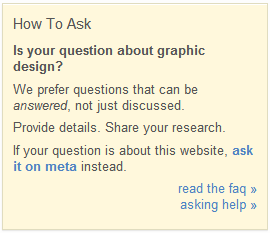First up, this was a bad question. Everyone can agree on that - probably including the guy who asked it, who was clearly in a rush and has used other stackexchange sites before. I think we're pretty much agreed that the best way to respond to questions with no prior research is to tell people as clearly and simply as possible what they're doing wrong, give them the chance to improve it, and close if this doesn't happen.
The person who commented with a "Let me google that for you" link (if you've not seen one before, they're like this - http://lmgtfy.com/?q=what+is+lmgtfy ) was right to comment pointing out what was wrong, and right to down vote and vote to close (I also voted to close, and I don't do that often). The disagreement was with the way they did it in this case. (It's worth mentioning that they are someone who's a really experienced, respected and valued regular user here, who absolutely knows what's okay and what isn't, and who is usually one of the very best in our community for promoting the right kind of positive atmosphere here.)
I think question behind the disagreement that led to this issue is, "When someone posts a bad question (bad almost to the point of being rude), is it okay to be rude to them back?"
The answer has to be no, because:
- It's always a bad precedent. If we set a precedent that it's okay to be rude to obviously bad questions, we'll very quickly discover a startling variety in what everyone thinks is obviously bad. For example, it will be just a matter of time before we see someone is convinced that the list of acceptable times to be rude includes "they use Windows when every designer I know uses Mac" or "they use older versions of Creative Suite", or "the answer's in this book I read years ago that was required reading on my course, so of course it's common knowledge", or even "they sound inexperienced". These happen all the time in forums. Better to have a simple precedent: be direct, but never be rude.
- We need new people, and our way of doing things isn't obvious to new people. There will always be new people not knowing our excellent but quirky and not very clearly communicated way of doing things (see Brendan's excellent answer). To thrive and survive, we need a good number of these people to want to get involved and to figure out how we do things as easily and painlessly as possible. So when (not if) this happens, we just tell them simply and clearly what they're doing wrong. It'd be great if we had an FAQ or similar that really worked for spelling out, simply and plainly, aimed at a design audience, what exactly our way of doing things is and why it works. Our 'About us' page is really generic and the non-generic bits of our 'FAQ' page seem written more for people who already know stackexchange.
- In all communities, regulars sometimes get frustrated when new people make mistakes, and people sometimes snap. When (not if), this happens, we remind them to be nice, we politely advise the person who was snapped at how they can make their question better, and we move on. It shouldn't be a big deal (especially as it'll happen more often if/when we finally attract significant numbers of designers who have never heard of StackExchange or StackOverflow before)
- People say and do rude or confrontational things on the internet they'd never do in real life. I quite often get asked soft questions at work by colleagues who could have just googled it. I usually say something like, "There's loads of good resources on that, you can find it by google faster than I could explain it". They get the hint. I'd never dream of saying "Oh, let me Google that for you. PASSIVE AGGRESSIVE SLOW TYPING. There, that wasn't hard, was it?". I'd expect to get punched or sworn at. The only time in real life that kind of thing would be okay is if you personally were being harassed with lazy questions more than once from the same person, or, banter with a friend.
- Sometimes, it's not as trivial as it looks and askers have researched it (but forgot to say). This has happened here before (but probably not in this case). Such people can respond to a comment like "There will be loads of resources on that, google it" saying, for example, "Actually I did but there were just dead links and tutorials on curved glasses like wine glasses, which is a different effect. And I looked on 6 stock photo sites but I couldn't find any that were -some specific criteria-, sorry I forgot to mention that detail". This would be fine, we'd re-open the question, and they'd learn to always show prior research and be specific. However, there's no non-confrontational response to being patronised. (This has happened here before now - someone posted asking for help adding a gloss effect to an onscreen photo and forgot to say they'd already researched it finding nothing; they got LMGTFYed with a bunch of irrelevant search results about adding gloss effects to text buttons, and it set an unnecessarily nasty confrontational tone to what should have been as simple as, "Google it?", "I have", "Oh, okay")
This issue of niave newcomers and frustrated regulars is a constant thing in every stack exchange site, every web community and arguably, every community that accepts outsiders. There's a great article about it by the stack exchange blog people who have put loads of thought and research into the issue, it's well worth a read: http://blog.stackoverflow.com/2012/07/kicking-off-the-summer-of-love/
Basic gist: Don't drop your standards. Do communicate them in a way that is direct, straightforward, non-snarky, and professional.

